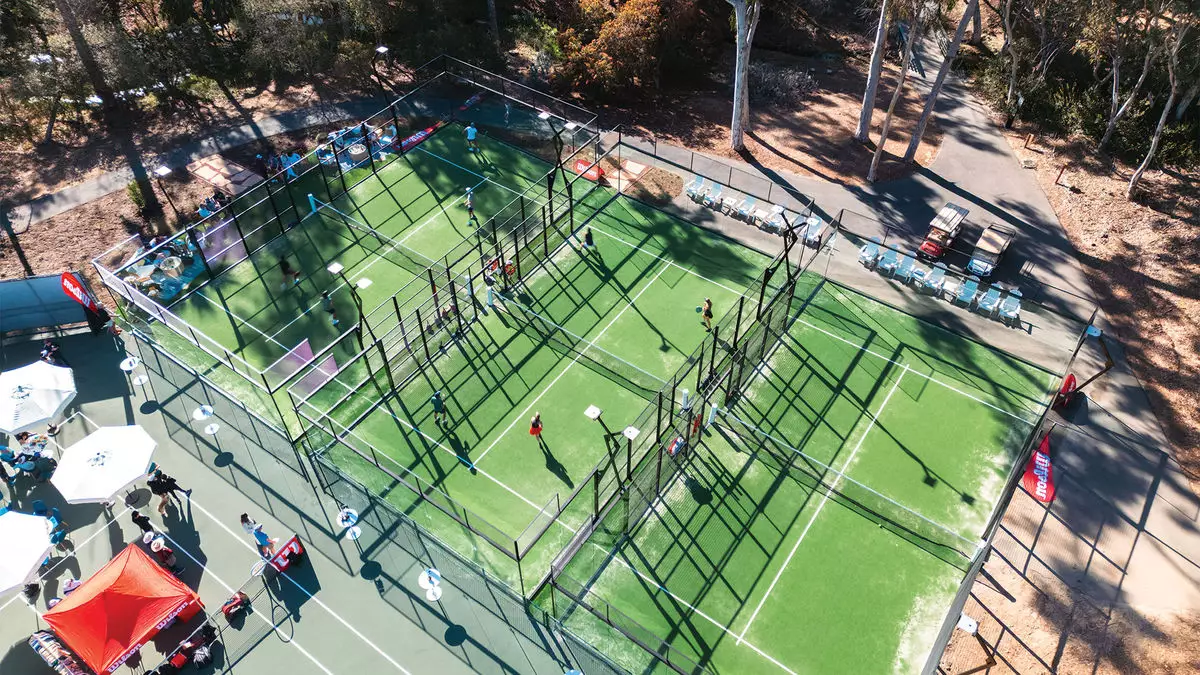As the world continues to gravitate towards sports that are inclusive and socially engaging, Padel is swiftly earning its place as the new favorite racket sport. A compelling fusion of elements from tennis and squash, Padel isn’t just another niche pastime—it’s a burgeoning phenomenon. Originating in the sun-soaked courts of Mexico during the 1960s, this sport has recently encountered a renaissance that is catching fire across Europe and beyond. According to the 2024 “Global Padel Report” from Playtomic and PwC’s Strategy& division, the sport is flourishing like never before, with nearly 6,000 new courts established worldwide in 2023 alone—a sign that Padel is here to stay.
Although Padel has deep roots in countries like Spain and Argentina, its expansion into places like the United States, the U.K., France, and Germany marks a significant pivot in the global sports landscape. Ian Ryder, co-founder of U.K.-based Padel Tripper, forecasts that in just a few years, Padel may even eclipse pickleball in the U.S. This growing popularity indicates a shift in recreational preferences, opening up possibilities for the sport to become a mainstay in hotels and resorts across the globe.
The Unique Allure of Padel
What makes Padel so compelling? Unlike tennis, which can often feel gatekeeped by complex serves and difficult techniques, Padel is refreshingly accessible. Players of varying skill levels can easily rally and find enjoyment in the game without dedicating months to mastering the serve. This low barrier to entry is crucial, especially for newcomers who may find traditional racket sports intimidating. Ryder notes that the smaller courts and enclosed design engender a communal atmosphere, sparking joy and laughter that makes the game feel far more social.
Moreover, this sport boasts a surprisingly high percentage of female participants, ensuring that it remains inclusive. Padel’s family-friendly social vibe creates a culture that invites engagement among diverse demographics, breaking down historical divides often seen in more traditional sports. With more players getting involved, the sport is shifting the focus from competition to connection, showcasing the importance of social bonds formed through shared activities.
World-Class Facilities Rise to Meet Demand
The run-up in popularity has not gone unnoticed by the hospitality sector. Major hotels and resorts are proactively integrating Padel courts into their facilities to capture the upcoming trend. The Gleneagles Hotel in Scotland has taken a bold step by unveiling its Gleneagles Sporting Club, complete with multiple Padel courts offering coaching services. The Oberoi Marrakech in Morocco also joined the bandwagon, enhancing its fitness offerings, while the Baha Mar resort in the Bahamas has plans to expand its sporting facilities.
In the U.S., Rancho Valencia Resort & Spa has converted its tennis courts into state-of-the-art Padel facilities, showing that the demand for this sport is not confined to just one geographical area. The resort’s decision was rooted in player feedback; guests expressed significant interest in the sport, indicating that Padel could be as vital as traditional racket sports in a luxury setting. Such investments showcase the hospitality industry’s recognition of Padel as more than just a passing trend—it’s become an essential offering for destination experiences.
The Future of Racket Sports
Padel’s gains are resulting in a paradigm shift in how hospitality chains approach the sports and wellness industries. Unlike the sharp “pop” sound associated with pickleball, Padel has garnered a largely positive reception, earning itself a unique standing that can attract curious newcomers. The allure isn’t just limited to seasoned athletes; many guests who have yet to experience Padel find themselves intrigued and eager to try their hand at the game.
The sport’s international appeal is evident, particularly among guests visiting from countries where Padel is already popular. These guests are thrilled to discover that they can continue their favorite pastime while on vacation, creating a unique opportunity for hotels to build lasting relationships with their clients.
As Padel continues to gain momentum, it becomes increasingly clear that this sport isn’t merely a new option for avid racket enthusiasts—it’s reshaping the recreational landscape and setting a new standard for social engagement in sports. In doing so, Padel offers a fresh and profound avenue for communities to connect, socialize, and enjoy life’s pleasures together.


Leave a Reply